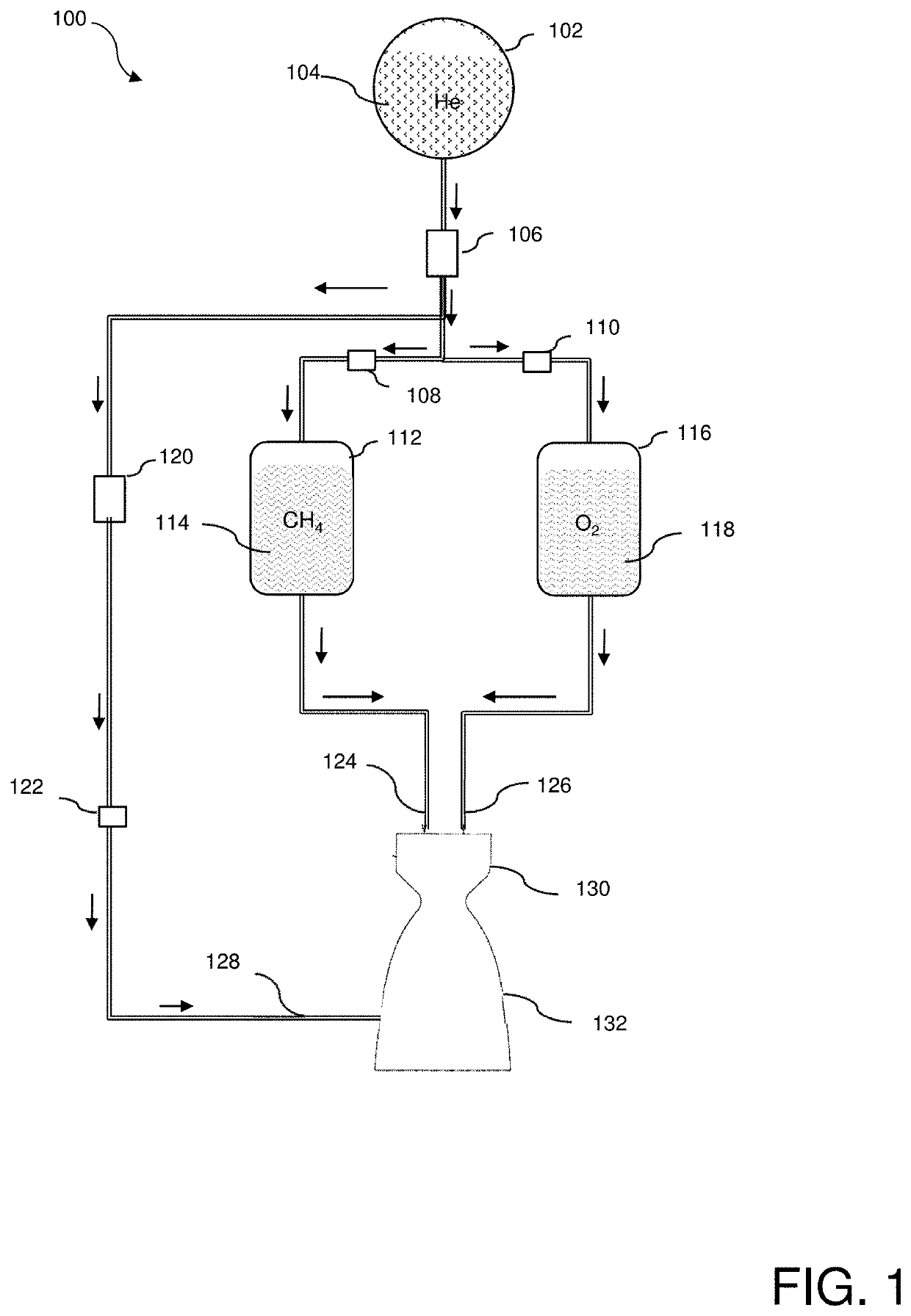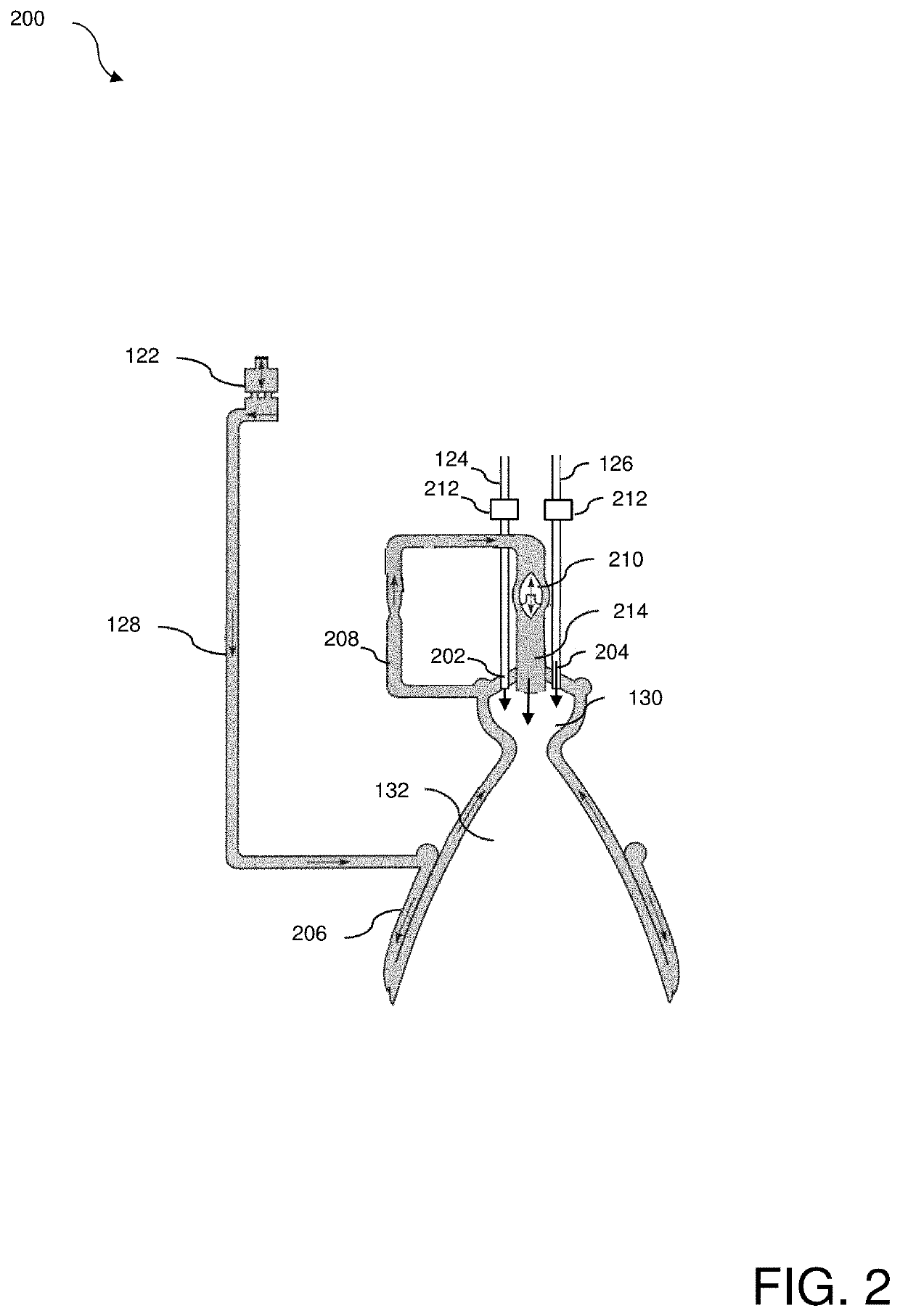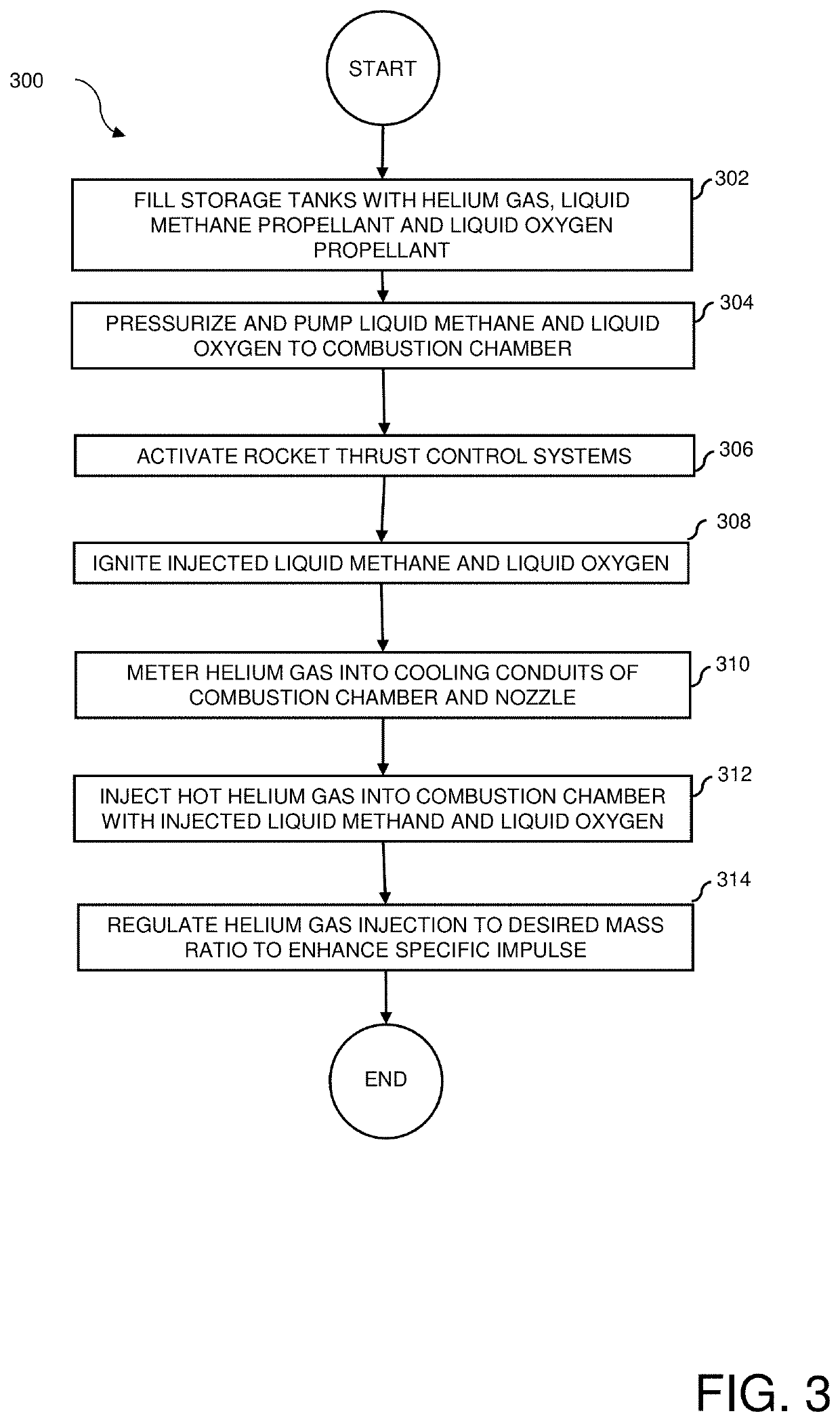Methane/oxygen rocket engine with specific impulse enhancement by hot helium infusion
a technology of specific impulse and rocket engine, which is applied in the field of rocket engine specific impulse enhancement together with, can solve the problems of low performance of propellant combination, inability to pump hydrogen gas, and several undesirable liquid hydrogen/liquid oxygen lrpes, etc., and achieve the effect of specific impulse enhancement and enhancement of the specific impulse of the rocket engin
- Summary
- Abstract
- Description
- Claims
- Application Information
AI Technical Summary
Benefits of technology
Problems solved by technology
Method used
Image
Examples
Embodiment Construction
[0015]Helium (He) has the lowest molecular mass after hydrogen. Compared to hydrogen, helium is inert and its compressed gas has well-known tanking / mass properties and is also a good regenerative coolant for the nozzle and combustion chamber of a rocket engine. Helium does not dissolve in propellant liquids such as oxygen or hydrocarbons and has been used to pump both fuel and oxidizer from their tanks in small rocket engines. Helium is viewed as non-toxic and does not dissociate at any temperature thereby avoiding the combustion-enthalpy decreases that hydrogen and other molecular species introduce at high chamber temperatures. While helium has been routinely used as the sole propellant in Vernier rocket engines for auxiliary propulsion and while compressed helium tanks are used for propellant pumping in relatively small rockets such as the Space Shuttle's Orbital Maneuvering System (OMS), helium has not been used inside medium to large size second or third stage rocket engines for...
PUM
 Login to View More
Login to View More Abstract
Description
Claims
Application Information
 Login to View More
Login to View More - R&D
- Intellectual Property
- Life Sciences
- Materials
- Tech Scout
- Unparalleled Data Quality
- Higher Quality Content
- 60% Fewer Hallucinations
Browse by: Latest US Patents, China's latest patents, Technical Efficacy Thesaurus, Application Domain, Technology Topic, Popular Technical Reports.
© 2025 PatSnap. All rights reserved.Legal|Privacy policy|Modern Slavery Act Transparency Statement|Sitemap|About US| Contact US: help@patsnap.com



